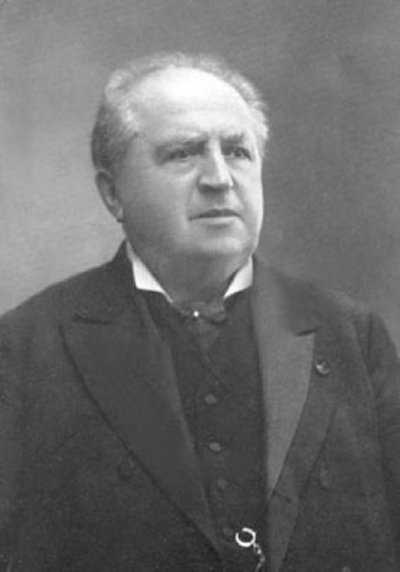This is an excerpt from Guidance for Christian Engagement in Government by Abraham Kuyper. It's the first-ever English translation of Kuyper's Our Program, which was published in 1879. The intention of his work was to inform people participating in the Dutch general elections of 1879. The French Revolution was over, but not the dangerous nature of its collectivist ideas. The influence of modern life and its secularizing influence was growing and reshaping the minds and hearts of Europeans and the rest of the Western world. Kuyper knew it would be a disaster for society if God was completely divorced from politics.
In this passage, Kuyper reflects his own idea of "sphere sovereignty." In Kuyper's words, "The sovereignty of the state as the power that protects the individual and that defines the mutual relationships among the visible spheres, rises high above them by its right to command and compel. But within these spheres … another authority rules, an authority that descends directly from God apart from the state. This authority the state does not confer but acknowledges."
Leaning toward decentralization
There you have the whole difference: "is divided into" and "consists of." "Cutting up into atoms" or "respecting organic bonds" mark the totally different roots of the two mutually exclusive systems.
For if I accept these two ideas: first, that the central government supplements the governments of region, municipality, and family instead of the governments of region, municipality, and family supplementing the central government; and second, that a country cannot be cut up into arbitrary sectors but instead is composed organically of life-spheres that have their own right of existence and came to be connected with each other through the course of history—then for anyone who thinks for a moment, the matter is settled in favor of decentralization.
Then, surely, to centralize all power in the one central government is to violate the ordinances that God has given for nations and families. It destroys the natural divisions that give a nation vitality, and thus destroys the energy of the individual life-spheres and of the individual persons. Accordingly, it begets a slow process of dissolution that cannot but end in the demoralization of government and people alike.
Despite the sneers about "national pride," "narrow provincialism," "urban smugness," and the much dreaded "mediocrity," and despite all the noise about "love of humanity," the uplifting power of "cosmopolitanism," the inscrutable mystery of "state unity," and the broad outlook of "men of the world"—despite all that, we shall continue to love the old paths, since they are paths by divine dispensation. With all who are of the antirevolutionary persuasion we shall maintain, over against the fiction of the all-competent, all-inclusive, and all-corrupting state, the independence given by God himself to family and municipality and region as a wellspring of national vitality, according to the ancient law of the land.
Rules for decentralization
In this sense, then, our Program desires that "regional and local autonomy be restored" by means of decentralization. But this cannot be achieved, I believe, without the application of the following four principles.
(a) the appointment of chief administrators in municipalities and provinces should be made from nominations;
(b) whatever transpires and ends within the orbit of a province or a municipality should be dealt with by the provincial or municipal government;
(c) the division into municipality or province should hold as much as feasible for all branches of government; and
(d) administrative justice should be given greater independence.



